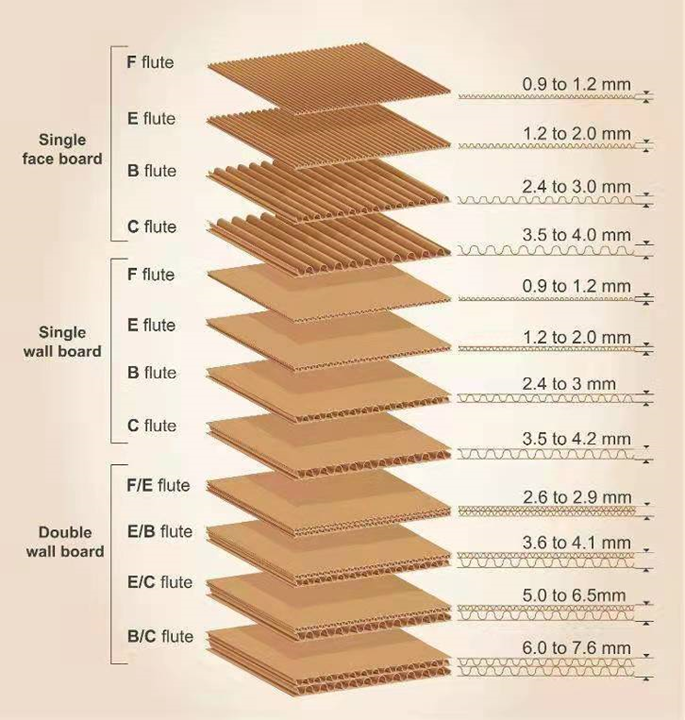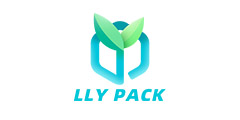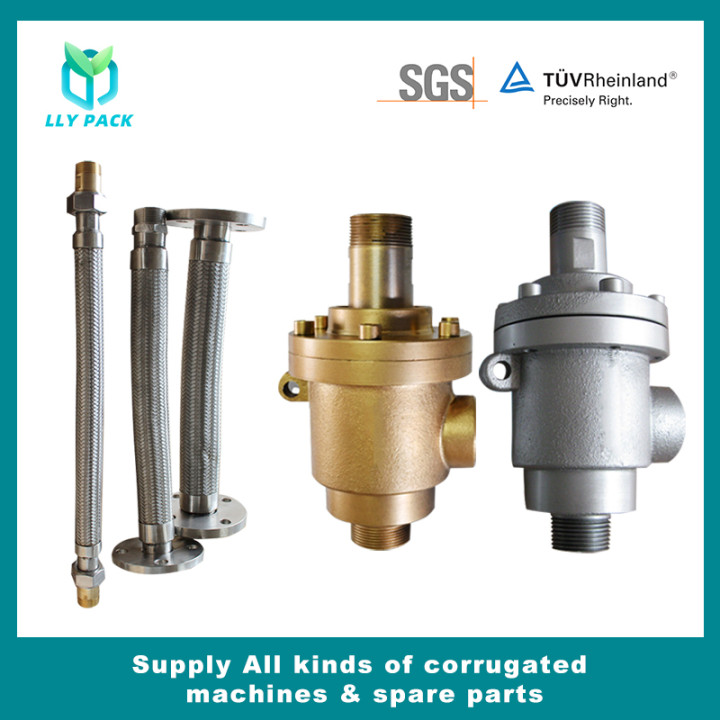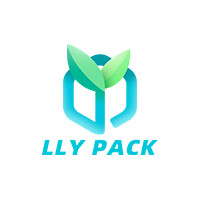This article mainly analyzes the main printing methods of today's corrugated board, and compares the direct printing and pre-printing processes of corrugated board.
With the progress of society, economic prosperity, increasingly fierce market competition and the continuous improvement of people’s living standards, people’s requirements for commodity packaging have also increased. The packaging of goods, whether it is directly facing the consumer's inner packaging or the middle packaging or outer packaging that may be discarded during the process of product transportation, plays an important role in the promotion of the product and brand building. The role of corrugated cartons, which were originally used as product transport packaging to protect products, has also been continuously enriched, which has led directly to the improvement of the printing quality requirements of corrugated cartons, and has led to the diversification of corrugated board printing methods.
First, corrugated board printing process
At present, the printing of corrugated cardboard is mainly based on flexographic printing, accounting for more than 70% of corrugated board printing in China, and higher than 85% in Europe and the United States. The printing process can be mainly divided into two categories: one is the direct printing process, which is directly printed on the already formed corrugated cardboard; the other is the pre-printing process, which is to print the corrugated cardboard first and then print the surface Paper and corrugated paper fit into corrugated cardboard.
1. Direct printing process
The direct printing process is one of the main printing processes of corrugated cardboard. The Corrugated Cardboard Machine direct printing method mainly includes two kinds: flexographic printing and offset printing, among which flexographic printing is absolutely dominant. The process flow of the direct flexographic printing process is: corrugated board production a cardboard directly prints a film slit groove an adhesive nail box. Direct offset printing is mainly used for the printing of micro-corrugated cardboard. The process flow is: micro-corrugated cardboard produces a micro-cardboard direct offset printing with a film slit groove and an adhesive nail box.
(i) Flexographic printing uses flexographic printing plates. The use of water-based ink or solvent-based volatile ink, ink transfer through the anilox roller to print printing technology. Flexographic printing has the characteristics of quick-drying ink, high-speed printing, and low cost, and is particularly suitable for the printing of corrugated paperboards with low requirements for printing accuracy. Flexo printing corrugated board has the following characteristics:
1 Use water-based fast drying ink to replace the past
A new EPN process in the packaging industry. It is also an innovation in the offset printing process. However, due to the large printing pressure of offset printing and the use of fountain solution in printing, the pressure and water absorption will reduce the strength of corrugated cardboard. Therefore, direct offset printing can only be printed on micro-corrugated cardboard with very high strength and ultra-thinness, and a special blanket with strong compressibility and good ink-absorbing transfer performance is used to prevent the strength of the corrugated cardboard from falling and the washboard "The appearance of the phenomenon.
(3) In addition to the above two main EPN methods, the direct printing method of corrugated cardboard is screen printing. Screen printing printing format can be large or small, plate making easy, low printing cost and thick printing ink, high color saturation. The visual effect is strong, but the resolution is not high, the image accuracy is low, and it is not suitable for the linkage production line. The production efficiency is low, so the direct screen printing of corrugated board is only suitable for the production of corrugated board using a single machine and is used when the batch volume is small.
2. Preprinting process
Although dominant flexographic printing in direct printing has many advantages. However, there are still many difficulties in printing patterns that are comparable to offset and gravure. In order to get a beautifully printed corrugated cardboard. Many manufacturers use pre-printing processes. The preprinting process includes the following processes: pre-printed facing paper and corrugated composite bonding produced by a production line. A computerized longitudinal slitting and a computerized cross-cutting slitting slit and an adhesive nail casing. There are various printing methods for preprinting corrugated cardboard, including offset preprinting, gravure preprinting, and flexoprinting.
(1) Offset preprint is to use offset printing corrugated cardboard paper first, and then use a single machine to rehearse the corrugated cardboard, the process flow is: Offset printed single-sheet paper and single-sided machine roll single-sided corrugated paperboard laminating machine composite sticky One die-cut slot is an adhesive nail box.
Offset preprinting can result in exquisite cartons, but it also creates other problems such as complicated processes, high production costs, long production cycles, low carton strength, limited printed materials, limited print format, high scrap rate, and production sites. Large, high labor intensity, especially for large batches of packaging cartons. Due to the high production cost and long cycle, which can not keep up with the customer's demand for products, from the perspective of the development trend of foreign packaging industry, the offset printing pre-printing method will be gradually reduced in the production of corrugated cardboard.
(2) Gravure preprinting is the use of gravure printing technology in advance in the width of the reel
Pre-printing the desired delicate pattern on paper (carton paper). Then, the corrugated paperboard production line made of roll paper is made into corrugated cardboard. Then die-cutting die-cutting machine into a box type. The characteristics of gravure preprints include:
1 Print quality is best and most stable in various printing methods.
2 using water-based ink. Green.
3 printing plate resistance to high force. Suitable for carton large-volume printing production requirements.
4 Suitable for printing continuous patterns.
5 printing speed. high productivity.
6 plate making complex. And the plate price is higher. 8 to 10 times that of a flexo.
7 Process technology is more complex, relatively more processes, and high printing costs.
(3) Flexographic preprinting uses a flexographic printing press to print on a web. After printing, it is still received into a roll of paper. 5. The printed web is then used as corrugated cardboard box board as corrugated cardboard production line on carton board. Then die-cutting die-cutting machine into a box type. Preprinted flexographic features include:
1 Non-toxic and non-polluting, which is conducive to environmental protection is a green and environmentally friendly printing method. It has great advantages in the printing of green cartons such as food containers and medicine boxes.
2 Large-format, multi-color, high-quality color crates can be printed.
3 Wide range of printing materials, can accept EO30-700g/m2 paper and board.
4 Printed on different screens, fine prints, and good print consistency.
5 In the corrugated board production line, the surface paper and the corrugated board are re-bonded one at a time to improve and improve the strength and stamping resistance of the corrugated board.
6 The printing cost is low, the speed is fast, and the output is high.
7 Loss of highlights and shadows is easy to lose, and it is suitable for copying of 8% to 85% tone areas.
8 Cannot copy too small text lines. As the flexographic plate is deformed during printing, the fine text and lines are enlarged and pasted together.
Second, the comparison of the direct printing process and the preprinting process
Although at present domestic and foreign in the printing of corrugated cardboard, direct printing is still one of the main printing processes, but in addition to simple process. With the advantages of high speed and short cycle time, other aspects are not as good as the preprinting process. The preprinting process has some obvious advantages compared to the direct printing process: First, it can obtain higher printing quality and more adaptability. The second is that the pre-printing can be printed at a richer level. The printing quality is also more stable and reliable. The third is to make corrugated boxes get higher strength. This is because the preprinting does not have to imprint the cardboard after it is formed. Can avoid corrugated deformation and weaken cardboard strength. When using direct printing. Because each color printing will make more or less deformation of corrugated board. And the more the number of colors. The greater the effect on the deformation of the corrugated board. therefore. Pre-printing has become an important trend in corrugated board printing. Especially high-end delicate carton. Including large and heavy-duty cartons is more suitable for pre-printing.
In short. There are many ways to print corrugated cardboard. And in order to meet the requirements of various packaging. The printing method will continue to increase. And these printing methods have their own advantages and disadvantages. Suitable for different requirements and uses. As a manufacturer of corrugated cardboard boxes, a suitable printing method should be selected according to the characteristics and application of the production cartons.
■ Author: Wang Haimei Luoguang Lin
(Author: School of Printing and Packaging Engineering, Xi'an University of Technology)
Reprinted from: Printed in China












